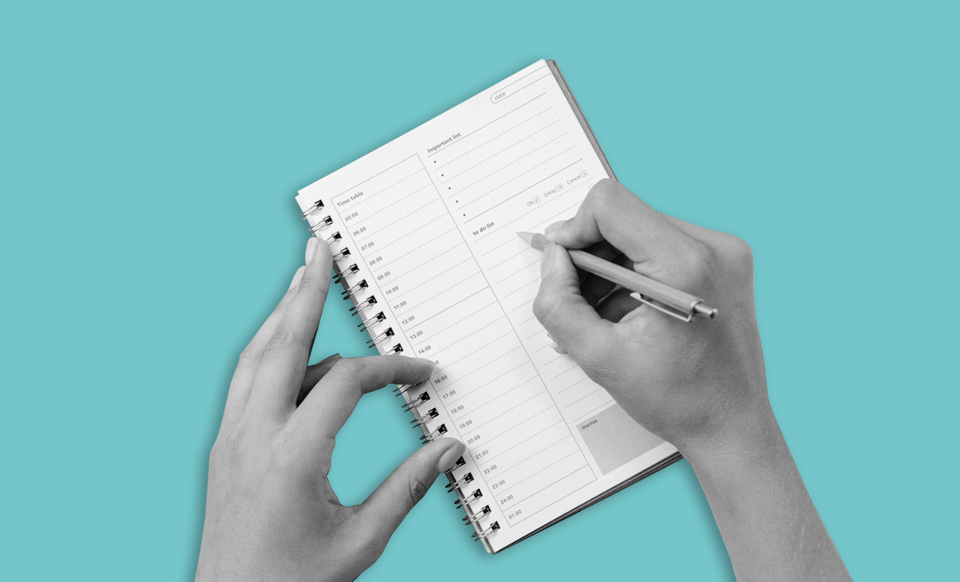
9 PMDD mythbusters
Do you know fact from fiction when it comes to premenstrual dysphoric disorder (PMDD)?
Got an appointment with your GP or doctor for period pains, heavy bleeding, or irregular periods? Follow these key steps to help you prepare and get the most out of it.

Period pain, heavy bleeding, and irregular cycles are common problems which can have a big impact on your life.
It’s important to see your doctor if you have concerns or symptoms about your periods that are affecting you, such as taking time off work or education, or preventing you from enjoying hobbies.
There are effective treatments to help you manage symptoms, and the first step is usually to see your GP or nurse.
Knowing how to describe what’s happening, and when, could make it easier for your doctor to understand what’s going on so they can give you the right information, treatment, care and support.
Contact your GP practice and book an appointment. You can ask to speak to someone who specialises in women’s health, although every GP should be able to help. If you’d prefer a female GP or nurse, you can ask for one when making a booking. You can ask for a translator for your appointment if English isn’t your first language.
Many people have told us their appointments felt rushed. If you’re worried about this, you can request a double appointment.
While waiting for your appointment, it may be helpful to read our articles on period pain and heavy bleeding for advice on how to manage your symptoms at home. There is information about irregular cycles too.
Each of your periods can vary. Keeping a diary or using a period tracker before your appointment can help identify patterns in your cycle. Note down the day your period starts, when it ends, and any symptoms, such as painful cramps, your mood and energy levels.
Important: If your periods are affecting your life, please book an appointment as soon as possible and don’t wait weeks or months. You should book an appointment immediately if you experience any of the following:
It’s helpful to record how heavy your periods are. For example:
- light – changing your tampon or pad every 3-5hrs
- medium – changing every 2-3hrs
- heavy – changing every 30mins to 1hr
Track the number of days you experience heavy bleeding. Heavy bleeding could be a sign of an underlying medical condition like fibroids or endometriosis.
It's also recommended you track other symptoms, such as:
You should also note down if your period changes, you skip a period or haven’t had one for a while.
Talking about painful periods isn’t always easy. But knowing how to describe your pain can help your GP see how it impacts your day-to-day life.
Most doctors use a pain scale from 0 – 10, with 10 being the worst pain imaginable. But can you explain how that pain affects you? If your period pain is a seven, does that stop you getting out of bed? Or do you have to take a painkiller and can then get on with your day?
Using specific words will help your GP put together a more accurate picture of what you’re going through. For example, is your pain:
It’s also a good idea to note where you feel the pain and for how long i.e. “Stabbing pain in lower tummy for 2-3 hours in the evening of days 2 and 3 of my period”. Write down what you were doing, or stopped from doing at the time – had you just been to the gym? Commuting home from work on a train? Or standing and cooking?
Tell your doctor what helps to reduce the pain, such as any painkillers you take (and for how many days), a hot water bottle, gentle exercise or a TENS machine.
Your GP will want to know what else is happening in your life that could be affecting your periods. They may ask you:
Don’t be embarrassed to mention anything that can help your GP better understand your periods, from the impact they have on your mental health to how many pairs of pants you bleed through.
All this information can help them work out whether you need a referral to a specialist or if your symptoms can be managed by your GP.
Your doctor may want to do an internal examination to check for potential causes of your symptoms:
You should be offered a chaperone, and you can ask for a female doctor.
If you have a condition or reason why it may be less comfortable, such as vaginal atrophy, female genital mutilation or vulval lichen sclerosis, you can mention it to your doctor or nurse. You can take your own vaginal moisturiser for any vaginal examination.
Your GP should explain what they may suspect is causing your symptoms and work with you to find the best way to treat them. This is called shared decision making, and means you have the right to be involved in any discussions about your care.
There are a number of good treatments to help manage period pain, heavy bleeding, irregular cycles and other symptoms.
You can ask these questions when you talk about treatments with your doctor or nurse:
Your doctor may recommend period pain relief tablets , such as ibuprofen or a stronger painkiller, hormonal contraception like the pill or Mirena coil – which can reduce or stop periods altogether. Lifestyle changes may include a healthy, balanced diet and exercise.
It may take a few months for some treatments to be effective; keep tracking your symptoms and go back to your GP if your treatment is not working or it’s stopped working so well.
Some symptoms can be treated by your GP and don’t always need a referral. But your GP may refer you to a gynaecologist or other specialist if they suspect you have a gynaecological condition that needs further investigation or specialist treatment or surgery.
You’ll need all the same information as above to prepare for a gynaecologist appointment; having a clear record of your symptoms can help them spot any patterns, which could make a diagnosis easier.
But what if your doctor doesn’t recommend anything? What if you feel dismissed? You can ask for a second opinion from a different GP or health professional. For more information and advice about feeling dismissed, read this article.
The important thing to remember is you don’t have to take “it’s just a period” for an answer – you can stop periods from negatively affecting your life.
Our periods information hub is here to help educate and empower. Get more information and support here.
If you have any symptoms or concerns, always speak to your doctor.

Do you know fact from fiction when it comes to premenstrual dysphoric disorder (PMDD)?

You might be nervous about getting your first period, or you might have had periods for a while but are finding them difficult. You’re not alone.

Don’t worry, we’ve got the lowdown on how to feel supported while sorting fact from fiction.